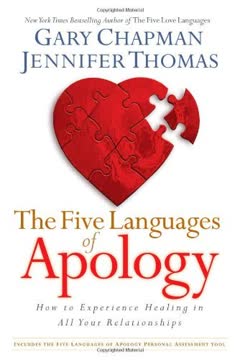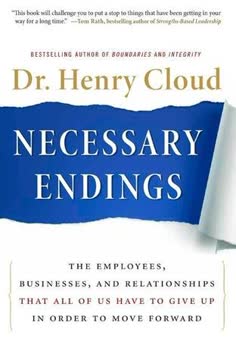Key Takeaways
1. Boundaries define where you end and others begin
In the simplest sense, a boundary is a property line. It denotes the beginning and end of something.
Boundaries clarify ownership. Just as physical property lines delineate land ownership, personal boundaries define what belongs to each individual in a relationship. This includes feelings, attitudes, behaviors, choices, and values. Understanding these boundaries helps identify who is responsible for what in a relationship.
Boundaries prevent blame-shifting. When boundaries are unclear, people often blame others for their own feelings and actions. This was evident in the case of Caroline and Joe, who constantly attributed their behavior to each other's actions. Clear boundaries help individuals take ownership of their own thoughts, feelings, and behaviors.
Boundaries foster individuality. In a healthy relationship, each person maintains their unique identity while connecting with their partner. This balance allows for mutual respect, personal growth, and a deeper, more authentic connection between partners.
2. Ownership and responsibility are crucial for healthy relationships
If we can discover who is responsible for what, we have an opportunity for change.
Taking responsibility empowers change. When individuals recognize that they are responsible for their own feelings, attitudes, and behaviors, they gain the power to make positive changes. This shift from blaming others to taking ownership is crucial for personal growth and relationship improvement.
Responsibility extends to actions. It's not enough to merely acknowledge ownership of problems; individuals must actively participate in resolving relational issues, even if they didn't cause them. This proactive approach leads to growth and positive change in relationships.
Areas of personal responsibility include:
- Feelings
- Attitudes
- Behaviors
- Choices
- Limits
- Desires
- Thoughts
- Values
- Talents
- Love
3. Freedom is essential for genuine love to flourish
God designed the entire creation for freedom. We were not meant to be enslaved by each other; we were meant to love each other freely.
Freedom enables choice. True love can only exist when both partners have the freedom to choose each other. When one person feels controlled or manipulated, it hinders their ability to love freely and genuinely.
Perceived control breeds resentment. Even if actual control isn't present, the perception of being controlled can lead to anger, resentment, and rebellion in relationships. Recognizing one's freedom to make choices, even in difficult situations, is crucial for maintaining a healthy perspective.
Freedom fosters growth. As partners experience freedom in their relationship, they become more capable of love, responsibility, and personal growth. This creates a positive cycle where increased freedom leads to deeper love, which in turn promotes greater freedom and personal development.
4. Boundaries protect and empower individuals in relationships
Boundaries help us to realize our freedom once again.
Boundaries safeguard personal well-being. Just as we protect our physical property, we need to protect our emotional and spiritual well-being. This involves setting limits on harmful behavior and creating a safe space for personal growth and healing.
Boundaries enable healthy vulnerability. By establishing clear limits, individuals can safely open up to their partners without fear of being exploited or overwhelmed. This balance of protection and openness is essential for building trust and intimacy in relationships.
Boundaries promote mutual respect. When both partners have clear, respected boundaries, it fosters an environment of mutual understanding and consideration. This respect for each other's limits and needs strengthens the overall relationship.
5. Self-control is the foundation of effective boundaries
Boundaries are basically about self-control.
Focus on controlling yourself, not others. Effective boundaries are about managing your own behavior and responses, not trying to control your partner. This shift in focus empowers individuals to make positive changes regardless of their partner's actions.
Self-control enables choice. By exercising self-control, individuals can choose how to respond to situations rather than reacting impulsively. This ability to pause and choose a response is crucial for maintaining healthy boundaries.
Self-control serves love. Ultimately, the goal of self-control and boundaries is to create an environment where love can thrive. By managing our own behavior and responses, we create space for intentional, purposeful love in our relationships.
6. Words, truth, and consequences establish clear boundaries
Your words help define you. They tell the other person who you are, what you believe, what you want, and what you don't.
Clear communication is essential. Using words to express likes, dislikes, wants, and needs helps define personal boundaries. Silence or a lack of clear communication can lead to misunderstandings and boundary violations.
Truth provides structure and safety. Living within God's truths and principles provides a framework for healthy relationships. Being honest about oneself and the state of the relationship is crucial for maintaining authentic connections.
Consequences reinforce boundaries. When words alone are not effective, consequences can help communicate and enforce boundaries. These can range from minor actions to more significant steps like separation, depending on the severity of the boundary violation.
7. Emotional and physical distance can be necessary boundary tools
Sometimes, when all else fails, people must get away from each other until the hurt can stop.
Emotional distance protects the heart. In situations where trust has been broken or hurt is ongoing, creating emotional distance can provide time for healing and rebuilding trust. This is not about punishment, but about protecting oneself from further harm.
Physical distance provides perspective. Temporary physical separation can offer time to think, heal, and learn new patterns of interaction. This can range from taking a brief break during an argument to more extended periods of separation in severe cases.
Distance should serve a purpose. The goal of creating distance should always be to work towards healing and reconciliation, not to punish or seek revenge. It's important to examine one's motives when establishing these boundaries.
8. Boundaries serve love, not selfishness
We hope that when you take control of yourself, you will love better and more purposefully and intentionally so that you and your spouse can have the intimacy you desire.
Boundaries enable genuine love. By establishing healthy boundaries, individuals create an environment where love can flourish freely and intentionally. This leads to deeper intimacy and more fulfilling relationships.
Self-care is not selfish. Taking care of oneself and establishing boundaries is an act of stewardship, not selfishness. It allows individuals to be healthier and more capable of loving others effectively.
Boundaries foster mutual growth. When both partners respect each other's boundaries, it creates a cycle of growth, freedom, and deeper love. This mutual respect and support lead to stronger, more resilient relationships.
Last updated:
FAQ
What's Boundaries with Kids about?
- Focus on Parenting: Boundaries with Kids by Henry Cloud and John Townsend emphasizes the importance of setting healthy boundaries in parenting to help children develop responsibility and self-control.
- Biblical and Psychological Integration: The book integrates biblical teachings with psychological principles, illustrating how boundaries align with God’s design for relationships.
- Practical Strategies: It offers practical strategies for parents to implement boundaries effectively, ensuring that children learn to respect limits and understand the consequences of their actions.
Why should I read Boundaries with Kids?
- Enhance Parenting Skills: The book provides a framework for teaching children about limits and responsibilities, helping parents navigate the challenges of raising children in a healthy environment.
- Address Common Issues: It addresses common parenting issues such as defiance, entitlement, and lack of respect, offering solutions for more harmonious family dynamics.
- Promote Healthy Relationships: By learning to set boundaries, parents can foster healthier relationships with their children, contributing to the child’s emotional and social development.
What are the key takeaways of Boundaries with Kids?
- Importance of Boundaries: Boundaries are essential for both parents and children, helping define acceptable behavior and protecting emotional well-being.
- Teaching Responsibility: The book emphasizes teaching children to take responsibility for their actions through consistent boundary-setting and natural consequences.
- Biblical Foundation: It provides a biblical foundation for boundaries, aligning them with God’s principles for relationships, which can boost parents' confidence in their approach.
What are the best quotes from Boundaries with Kids and what do they mean?
- “You reap whatever you sow.”: This quote emphasizes that actions have consequences, reminding parents to teach accountability.
- “Boundaries are not walls.”: It clarifies that boundaries protect relationships rather than isolate individuals, encouraging open communication.
- “A person’s character is one’s destiny.”: This highlights the importance of character development, suggesting that values instilled in children determine their future success.
How do I set boundaries with my children according to Boundaries with Kids?
- Be Clear and Consistent: Communicate expectations and consequences in a straightforward manner to ensure understanding.
- Allow Natural Consequences: Let children experience the natural consequences of their actions to foster responsibility.
- Practice Empathy: Acknowledge your child’s feelings and explain the reasons behind boundaries to help them accept and understand them.
What are some common boundary problems discussed in Boundaries with Kids?
- Compliant Behavior: Compliant children may struggle to assert themselves, leading to resentment and lack of responsibility.
- Control Issues: Some parents may struggle with controlling behaviors, hindering their child’s independence and creating tension.
- Boundary Confusion: Children may not understand limits set by parents, resulting in behavioral issues and lack of respect for authority.
How can I help my child develop healthy boundaries?
- Model Healthy Boundaries: Set an example by maintaining healthy boundaries in your own life.
- Encourage Open Communication: Create a safe environment for children to express their feelings and opinions.
- Teach Consequences: Use discussions and real-life examples to help children understand the consequences of their actions.
What are the laws of boundaries mentioned in Boundaries with Kids?
- Law of Sowing and Reaping: Individuals experience the consequences of their actions, emphasizing accountability.
- Law of Responsibility: Individuals are responsible for their own feelings and actions, encouraging ownership of choices.
- Law of Respect: Respecting others’ boundaries is essential for healthy relationships, teaching mutual respect in interactions.
How do boundaries relate to submission in a Christian context?
- Mutual Submission: Both partners are called to submit to one another, fostering a loving and respectful relationship.
- Freedom in Boundaries: Boundaries enhance submission by allowing individuals to express needs and desires, creating a healthier dynamic.
- Avoiding Control: True submission should come from love and respect, not fear or manipulation.
How can I enforce my own boundaries with my children?
- Be Assertive: Clearly state your boundaries and the reasons behind them to help children understand their importance.
- Use Consequences: Implement appropriate consequences when boundaries are crossed to reinforce the importance of respecting limits.
- Stay Consistent: Consistency in enforcing boundaries helps children feel secure and understand expectations.
How do boundaries help in character development?
- Self-Control: Boundaries teach children self-control by requiring them to think before acting, essential for responsible choices.
- Responsibility: Understanding limits helps children take responsibility for their actions, fostering accountability.
- Empathy: Setting boundaries helps children understand others' feelings and needs, promoting empathy and healthy relationships.
How can I ensure my children will not have boundary problems in the future?
- Teach Early: Start teaching boundaries at a young age to help children internalize these lessons.
- Encourage Independence: Allow children to make choices and experience consequences, developing autonomy and responsibility.
- Provide Support: Create a supportive environment for open communication, helping children understand the importance of boundaries in relationships.
Review Summary
Boundaries with Kids receives largely positive reviews, praised for its practical parenting advice on setting clear boundaries and allowing natural consequences. Readers appreciate its focus on developing children's character and responsibility. Some find it religiously oriented, which appeals to some but not others. The book is considered relevant for parents of children of various ages, though some feel it's more applicable to older kids. Critics note outdated gender roles and parenting methods. Overall, most readers find it a valuable resource for raising responsible, well-adjusted children.
Similar Books







Download PDF
Download EPUB
.epub digital book format is ideal for reading ebooks on phones, tablets, and e-readers.













